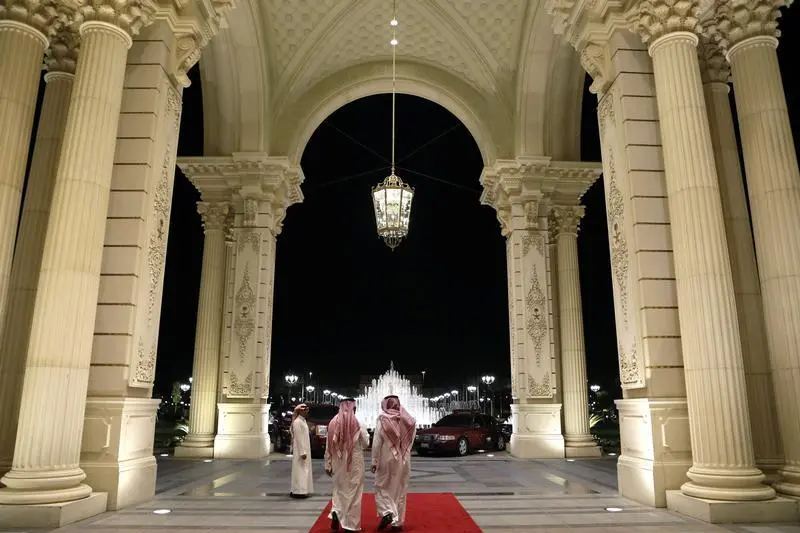PHOTO
RIYADH, March 5 (Reuters) - Saudi Arabia's Commission for Tourism and National Heritage has set aside 397 million riyals ($105.86 million) for 2017 to support a new lending program for hospitality and tourism projects, according to a statement on state news agency SPA.
The announcement may be a sign that the Saudi government is unlocking funding for its National Transformation Program (NTP), a set of ambitious development targets announced in June that has been slow to get off the ground amid a fiscal crunch.
According to the NTP, which aims to develop new private sectors and diversify the Saudi economy beyond oil, the tourism lending program will total 3 billion riyals over five years.
So far, the Commission has received 40 requests for funding from investors working on hotel and tourism projects, of which 8 totalling 424 million riyals have been sent to the Ministry of Finance for approval, the statement said.
The Commission is still reviewing a further 11 requests totalling 190 million riyals.
The total five-year budget for NTP initiatives is 268 billion riyals, but few of the ministries and other prospective recipients specified in the document have announced short-term spending plans.
Some have complained of delays in funding allocations.
Tourism figures prominently in the kingdom's plans to create new jobs and new sources of revenues, but faces steep hurdles. Although the kingdom welcomes some 8 million religious pilgrims each year, it does not currently issue tourist visas.
Strict bans on alcohol, cinemas, women's driving and gender mixing are further turn-offs for potential travelers, leading even many Saudis to spend their holidays abroad.
The kingdom boasts Red Sea scuba diving, ancient rock art and historical sites such as Mada'in Salih, a city built by the same Nabatean civilisation that created Jordan's famous Petra ruins.
The Saudi Commission for Tourism and National Heritage is headed by Prince Sultan bin Salman, a son of the king.
($1 = 3.7502 riyals)
(Reporting by Katie Paul, editing by Louise Heavens) ((Katie.Paul@thomsonreuters.com;))
The announcement may be a sign that the Saudi government is unlocking funding for its National Transformation Program (NTP), a set of ambitious development targets announced in June that has been slow to get off the ground amid a fiscal crunch.
According to the NTP, which aims to develop new private sectors and diversify the Saudi economy beyond oil, the tourism lending program will total 3 billion riyals over five years.
So far, the Commission has received 40 requests for funding from investors working on hotel and tourism projects, of which 8 totalling 424 million riyals have been sent to the Ministry of Finance for approval, the statement said.
The Commission is still reviewing a further 11 requests totalling 190 million riyals.
The total five-year budget for NTP initiatives is 268 billion riyals, but few of the ministries and other prospective recipients specified in the document have announced short-term spending plans.
Some have complained of delays in funding allocations.
Tourism figures prominently in the kingdom's plans to create new jobs and new sources of revenues, but faces steep hurdles. Although the kingdom welcomes some 8 million religious pilgrims each year, it does not currently issue tourist visas.
Strict bans on alcohol, cinemas, women's driving and gender mixing are further turn-offs for potential travelers, leading even many Saudis to spend their holidays abroad.
The kingdom boasts Red Sea scuba diving, ancient rock art and historical sites such as Mada'in Salih, a city built by the same Nabatean civilisation that created Jordan's famous Petra ruins.
The Saudi Commission for Tourism and National Heritage is headed by Prince Sultan bin Salman, a son of the king.
($1 = 3.7502 riyals)
(Reporting by Katie Paul, editing by Louise Heavens) ((Katie.Paul@thomsonreuters.com;))





















